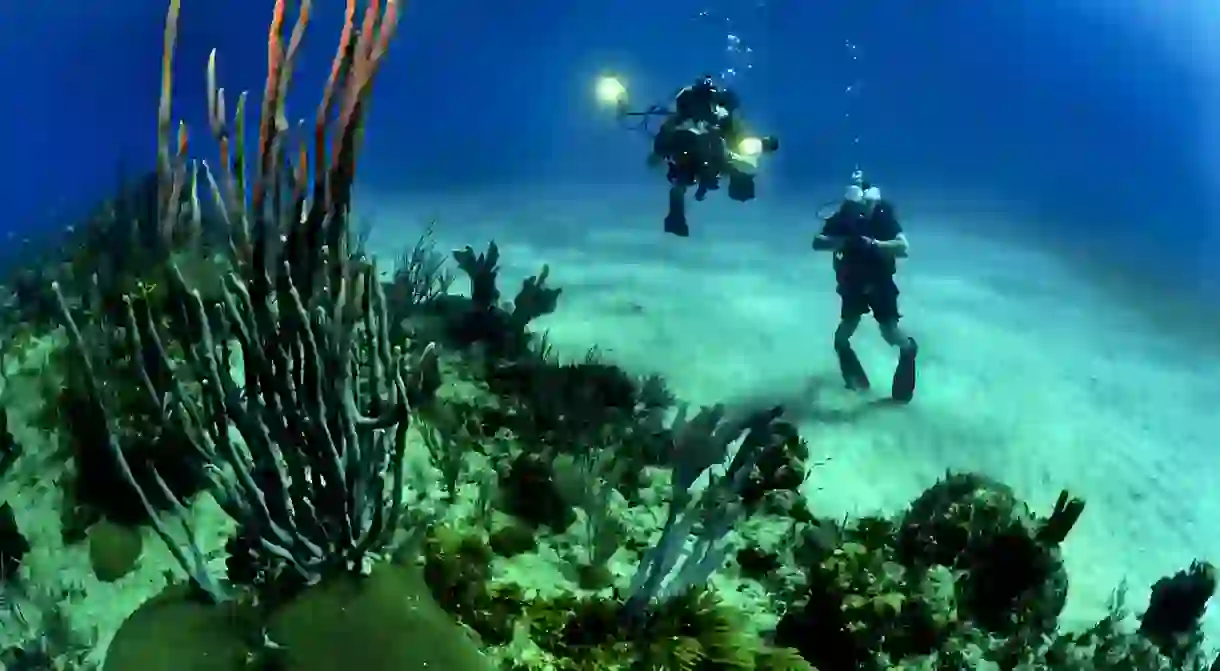A Budget Guide To Raja Ampat, Indonesia

Long hailed as a dream destination for scuba divers, the Raja Ampat archipelago in Indonesia’s West Papua is now luring travelers of all kinds with its promises of a tropical island getaway infused with adventure. At first glance, the wonders of Raja Ampat come with a hefty price tag. However, with a few tips, exploring Raja Ampat can be a reality even for those on a budget.
Getting There
Raja Ampat is only accessible from Sorong on the West Papuan mainland. From there, buy the $10 ticket for the public express ferry. Airfare to Sorong can cost upwards of $500, but keep an eye on specials from Indonesian airlines like Lion and Silk that can halve the price. Intrepid travelers with flexible schedules can opt to go by boat via the Pelni shipping line for part of or the entire journey. Second-class tickets cost between $30-$50 and boats leave from many ports in Indonesia. The trip can take from days to over a week.

Staying
While liveaboard dive boats and western-owned resorts were once the only options for staying in Raja Ampat, thanks to community-based tourism initiatives a series of homestays have cropped up on some of Raja Ampat’s most pristine islands. At $20-$40 a night for a double room, these homestays are far more affordable than their competition while offering more of a glimpse into the Papuan culture. Rooms are basic and mirror the simplicity of island life, but as many are stilted bungalows atop crystal clear water, the setting compensates for the lack of amenities.

Getting Around
With petrol prices artificially inflated, inter-island boat travel is one of the most expensive parts of visiting Raja Ampat. Therefore, choosing an island to stay based on their proximity to your preferred activities is important when looking to save. The islands located in the Dampier Strait are easily accessible from Waisai and close to fantastic dive and snorkel spots. Arborek hosts a small Papuan village and is close to manta ray dive and snorkel sites. Kri offers pristine white sand beaches and one of the region’s best dive sites just offshore. Gam and Waigeo are great for trekking, wildlife viewing, and kayaking.

Diving
Homestays offer a chance to experience the underwater wonders of Raja Ampat for a fraction of the cost of resorts and liveaboard boats. Yekoranu Homestay on Kri offers a seven night diving and staying package for $600, compared to the $1,800 for a week at nearby Kri Eco Resort. If your homestay does not offer diving they can usually arrange it with one that does. Diving with homestays requires extra vigilance to ensure that guides are properly certified and equipment is well maintained. Standards are improving, but with challenging conditions Raja Ampat should only be attempted by experienced divers.

Non-Diving Activities
With shallow reefs and marine life visible at all depths, snorkeling is an excellent alternative for non-divers or divers looking to save. Most homestays rent equipment for around $5 a day, and offer boat charters in addition to the excellent sites at their doorstep. Trekking and wildlife viewing are best done with a local guide hired through your homestay. Kayaking is a less expensive way to see the islands than boating; Kayak4Conservation has rentals and guided tours. The Penamu islands offer a hike to a viewpoint atop a lagoon that rivals the famous one at Wayag but is more centrally located.

Splitting the Costs
Traveling with others is one of the best ways to make Raja Ampat affordable. Boat transfers to home-stays or charters for activities are expensive but made to be shared between five to six people, bringing the cost as low as $5 a person at times. Ask your homestay when other guests are arriving and plan your trip around the same time if possible. Alternatively, the marine park office where everyone must purchase a permit or the ferry ride to Waisai offer opportunities to find travel partners once you’ve arrived.














